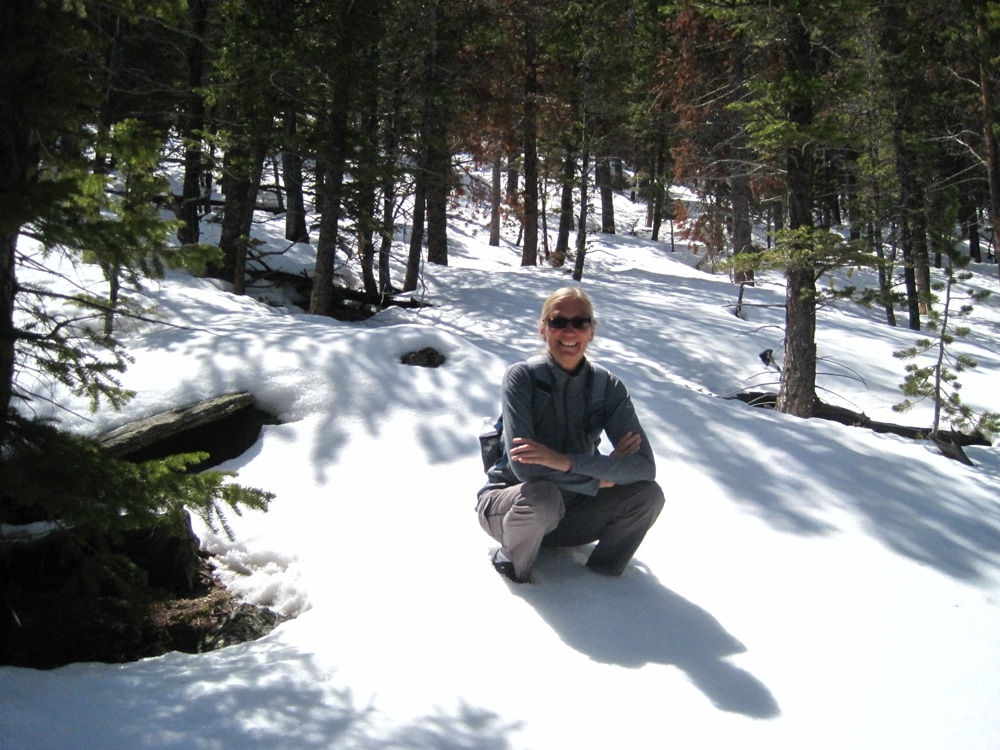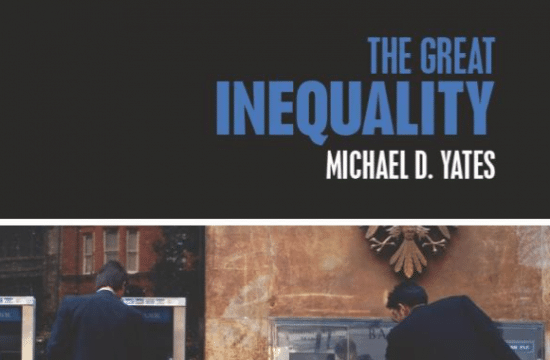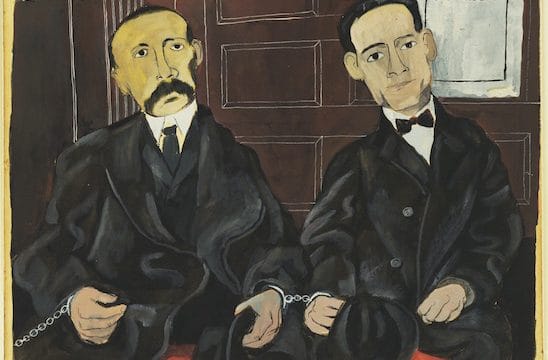Karen was diagnosed with cancer five years ago, in March 2008. She had surgery, then radiation and chemotherapy. There followed many visits to doctors, first every three months, then every six months. Finally, three weeks ago, Karen’s doctor said that, barring some sudden change in health, she now has to return just once a year. Our relief has been palpable.
I was slow to react to the news that there was a tumor growing in Karen’s body. My behavior in those first weeks was sometimes selfish and hurtful. We knew we would have to be in Tucson for a much longer time than we had planned, and I manically insisted that we look at a house on the same day we learned that Karen would have to have surgery. One morning, we talked in the parking lot by a grocery store, and she expressed her anger with me. When I saw that what I was doing and saying made her cry, I felt awful, but sometimes guilt makes me strike back, and I did this, making myself even uglier in her and my own eyes.
I did do helpful things, taking notes when nurses called, answering the phone when Karen didn’t want to talk, taking care of certain household chores, signing an agreement when we found a house to rent, and trying to be as supportive as I could. We had one son living with us then, and another came as soon as we told him the bad news. Their presence helped me focus better on what needed to be done. I wanted to set a good example for them.
The initial trips to the doctors, the preparations for surgery, meeting the intake workers at the hospital, dealing with health insurance, all passed in a blur. I don’t remember much about these things now, except how rude a receptionist was at the place where Karen had an uncomfortable ultrasound test. I do remember, vividly, my anxiety in that barren hospital waiting room while Karen had surgery. I sat, I read, I paced, I went outside, I went inside, fearing that I would miss the doctor, I did the same things over and over again. I went to the men’s room a dozen times. Bile rose in my stomach and stayed there. My heart raced. Finally, the surgeon came into the room, sat beside me, and said that the surgery had gone well, with good “margins” around the tumor. She comforted me while I cried. I rushed up to see Karen. When she was awake enough to see me and speak, she said, “Michael, am I going to die?”
Karen remained in the hospital for several days, every one of them miserable. Her bandages were too tight; she got uncontrollable hiccoughs; the nurse couldn’t get a catheter in properly; the food, even the water, nauseated her; and the sickening smell of the staff’s micro-waved popcorn made her vomit. I spent a fitful first night on a makeshift bed, and rather than make the trip back to the short-term rental where we were staying, I went to a nearby motel for the second night. On the third day, one of the surgeon’s colleagues came to see Karen. We were expecting good news, but we didn’t get it. The doctor told us that the pathologist’s report showed cancerous cells in lymph nodes close to where the tumor had been removed. The next day, the surgeon said that Karen would need radiation treatments and chemotherapy, but that there was a 50 percent chance of favorable results. We were in shock, and that afternoon, when I returned home to pack and move into a house we had rented for several months so Karen could recover, I cried uncontrollably in the car. I kept shouting, “Karen is going to die. What will I do if she dies?” Frantically, I called one of my sons and cried some more. I probably scared him to death. I have forced myself to forget what I said to him.
The drive home from the hospital was awful. I put the seat back so Karen could be comfortable, but the road was windy and bumpy, causing her great pain. Finally, we made it, and the boys and I helped Karen into bed. The room was large, and the bed had a fine Tempur-Pedic mattress. Outside the door that led onto the patio, there was a fountain, giving off a soothing sound. I closed the drapes and let her sleep.
Karen recovered with remarkable rapidity. But for a while, the slightest movement brought forth pain. I was suffering cervical spine problems, and a doctor had prescribed Percoset. These didn’t help my neck, but they had the advantage of putting me into a dream state every night, one in which I could lie perfectly still for hours. So, when I crawled into bed after watching episodes of The Wire with my son, I could rest without moving, accidentally bumping Karen and hurting her.
Eventually her pain subsided, the catheter was finally removed, and we took a short walk together. She gingerly held my arm as we slowly strolled one block and returned home. Each day, our excursion got longer, and soon Karen was walking twice a day, covering about five miles.
Karen’s return to physical vigor was cut short by the start of radiation and chemotherapy. Radiation was five mornings, Monday through Friday, with chemotherapy every Wednesday. We fell into a routine for six weeks. Coffee for me, nothing for Karen. An unpleasant drive on traffic-clotted Tucson streets, the summer heat growing worse every day, small talk with the receptionist, the nurse calling Karen’s name, and me waiting anxiously. I’d watch and listen to the people seated around me, some of them obviously very ill, most more upbeat than one might think possible. I’d pace the halls, read notices on the walls, step outside in the scorching sunlight, try to imagine what was going on in the heads of the steady stream of patients coming and going through the doors. Chemotherapy was in another part of the building. The nurses were pleasant, but the men and women in the chairs, with needles in their arms, seemed sicker than those in the radiation waiting room. Again, though, most were outwardly optimistic, one woman, in particular, moving Karen. She had had several recurrences of cancer, yet she was planning a trip to Egypt!
Karen had to remain in that chair for several hours. There was no escaping some nosy zealot who might stop in front of you and proselytize. I said to Karen that if that person starts talking to you, I am going say something nasty. This was an invasion of privacy almost too gross to contemplate. One day, an obviously deranged man began to make threatening remarks, scaring the hell out of both of us. It was always a relief to see the harsh chemical solution in the large plastic bag drain, and an even greater relief to get out of there. Karen’s arm was always stone cold, a reminder of the death stalking that room. It was for once a joy to get outside and into the heat.
Karen began each week feeling reasonably strong, but chemotherapy wrung the vigor out of her. She just wanted to crawl into bed and sleep. It also greatly enhanced her sensitivity to smells and made her unnaturally averse to certain foods and liquids. She couldn’t stand the thought or smell of water. I took showers in the bathroom at the end of the house opposite our bedroom, and I made her spritzers with sparkling water and cranberry or black cherry concentrate to mask the presence of the water. My son and I used the outdoor grill for most of our cooking so the odors wouldn’t permeate the house. I kept taking the Percosets, now so that I wouldn’t wake her during the night.
I assumed that our major expenses would be covered by insurance. I regularly checked the incoming bills online, and all seemed well. But I began to notice some peculiar entries. There was a $5,000 charge from a physician whose name I didn’t recognize. I was supposed to send a check to an office in Atlanta, Georgia. And I kept seeing large bills for radiation. At first, I thought that eventually these would be paid, but the balance kept mounting. When it reached more than $80,000, I called the company, and an agent told me that there was an unspecified problem with payment. I didn’t tell Karen; she had enough to think about. But I worried all weekend. On Monday, I waited until she went into the radiation room and then snuck into the finance office to speak to the manager. She told me not to be concerned but to keep her apprised. This began a game of me hoping Karen wouldn’t finish radiation and catch me in that office. Finally, the manager informed me that the insurance company had ruled that Karen’s radiation therapy was “experimental.” Fortunately, after two appeals, the last of which required Karen’s radiologist, herself, to present evidence to the insurer, the bills were covered. I dealt with the $5,000 charge by finding out who the doctor was, calling her office, discovering that she was some sort of assistant at Karen’s surgery, and refusing to send a check. Later someone told me that this doctor’s office wasn’t really expecting the money. I wondered how many scared patients paid such bogus charges.
When the radiation and chemotherapy ended, Karen’s strength came back. We joined a gym and resumed our long walks. Cancer doesn’t let you off the hook, though. A survivor has to undergo recurrent tests to see if the disease is in remission or has returned. In November, we took a trip to visit national parks in southern Utah. Karen wasn’t feeling well, and on one long hike broke into tears when she got so tired she couldn’t keep going. She said, “what’s wrong with me. I can’t hike anymore.” Her condition worsened, and she developed a cough, had a rash, and suffered night sweats. She improved some in a couple of days, and we continued our trip. Back in Tucson, Karen had the first of many Position Emission Tomograph (PET) Scans. These can detect minute numbers of cancer cells in the body. They are expensive, and we had to get prior approval from the insurance company. This was never a sure thing, and this added stress to what was exceptionally stressful anyway. Karen was injected with radioactive glucose, which attracts cancerous cells, and, several minutes later, subjected to the Scan. Then the wait for the phone call from the doctor began. This took as long as ten days, and each day the fears mounted. Karen read, and other cancer patients concurred, that waiting for test results was more stressful than finding out you had the disease.
When at last the radiologist called with the result of that first Scan, she said that there was a shadow on Karen’s lung. Karen was shaken, but the doctor remembered that Karen had told her that she had been sick on our trip. The radiologist considered that it might be just a lung infection, perhaps Valley Fever, something not uncommon in Arizona. If the shadow wasn’t so close to her heart, a biopsy would have been done. Instead, we would wait three months and have another PET Scan. We moved to Boulder, Colorado soon afterward and spent three months worried. We drove back to Tucson, Karen had the Scan, we spent a fitful night in a motel, and saw the doctor the next morning. The doctor kept making small talk, and finally Karen said, “What about the PET Scan?” Dr. C had forgotten about it, and she said she would call the physician who examined the Scan right then. When she returned to the room, she said the results were fine. We were so relieved. Neither of us can remember the fourteen-hour drive back to Boulder.
And so our lives have gone on. Living from check-up to check-up, PET Scan to PET Scan, always trying to enjoy life until it is time to see if Karen is still cancer-free. Life in three-month, six-month, and now one-year increments. The solicitous inquiries of family and friends have stopped, and only one person still regularly asks how Karen is doing. The truth about a serious illness is that no one wants to hear about it for very long. Maybe it reminds them of the fragility of their own lives. Most of us have a “get over it, already” attitude. And like my step-grandfather, who loved to see that another person he knew had died, some people secretly gloat at another’s illness. My sister said to my mother that it’s no wonder Karen got sick, she hated to go to the doctor. I guess our concerns are, in the end, for ourselves. Others don’t matter much. Still, though, the hurt from these unkindnesses doesn’t go away.
Let me end, not in anger, but in thanks. Thanks to Dr. N and Dr. C for saving Karen’s life. Thanks, too, to Dr. C for telling Karen and me that we shouldn’t remain in Tucson if we didn’t like it there. No reason not to continue to live the way we wanted, moving around, hiking, refusing to settle down. Eat well, exercise, do what suited us. Sage advice. Thanks to Dr. D for his calm professionalism, for being concerned when a test result didn’t look quite right but not setting off the panic alarm. Thanks to everyone who expressed concern and asked if they could do anything. For the organic food they sent us. Thanks, especially, to my friend Clark, for being kind, solicitous, and generous, For never failing to call and to ask, “and how is the dear one?” And most of all, thanks to Karen. For forgiving my selfishness and the mean things I said. For still being alive and sharing your life with me. Had you died, it would have been a bleak and hopeless existence. I don’t know if I could have carried on without you. But you’re still here, every night close to me in bed. Every day, helping plan our days and weeks. What a lucky man I am. I love you.









Very beautiful and moving.
Thanks, Kannan. It was difficult to write this. We were both crying when I first read it to Karen.
Good golly what a story. I’m glad things have turned out relatively favorably. I wish you all the best for the future.
Thanks, Jurriann. Much appreciated.
As is the case with just about everything that Michael writes, this came from the heart and is powerful as the ocean.
Louis, that is a fine compliment. Thank you.
I always love your pieces, Michael, but this one hit home. You’ve really caught what it’s like to be in that strange world of long-term illness, that few will talk about.
Thanks for the kind words, Bart.
Dear Michael,
For someone who has been in pretty bad shape health-wise for the past six months and has had to depend 100% on Jan (my companion and wife) to take care of me and drive me back and forth to the doctor, and administrate I do not know how many pills on a daily basis… For someone who has lost so many close ones to that dreadful disease, you have no idea how deeply I appreciate your touching, humble, and humane post.
When Jan takes my hand in hers and squeezes it strongly, simply saying: “Gilles, it’s okay, we’ll be fine…” — Note the WE. — Then you know who counts in life. Forget the politics.
Kindest regards to Karen and you.
Gilles
Thanks, Gilles, for your moving note. Yes, in the end not much matters but the person you love. We hope you are doing better. Take care, friend.
Your simple testimony expresses so many crucial things about our present cruel experience of illness and treatments.
Thank you Michael – and Karen! I’m crying too. We so need you both.
Andy, what a nice comment. We both thank you for it. We need you too!
incredible….
Beautiful piece, beautiful couple, thank you!
(beautiful photo also, filled with life!)
Thanks, Diane. Glad you liked the photo too!
Hi Michael
What a powerful essay and thrilled that check-ups are now yearly. My younger sister (58) went through treatment starting two years ago and is now sick with lung complications. Understand both the fear and anger but mostly am happy for both of you at this point. Thanks for such a thoughtful and real portrayal — hope the hiking and travel is continuing.
alan
Thanks for the kind words, Alan. I hope your sister’s condition improves. She will be in our thoughts.
What a humbling and beautiful piece, Michael. I for one know that I would never have the strength to go through with it, either as a patient or a caregiver.
Brian, thanks for your generous comments. You might be surprised as what you would have the strength to do! And perhaps when things are happening, we don’t feel that we are being strong at all.